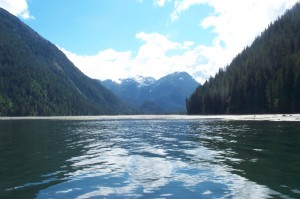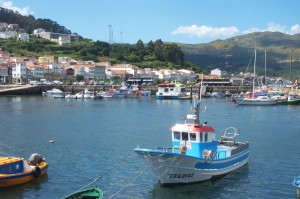 Fishing communities around the globe find themselves locked paradoxically between intensely local expressions of community and increasingly liberalized economic regimes. Commonly referred to as globalization, these trans-national processes are having a direct and often destabilizing effect on fishing communities. However, the changes are neither preordained nor uniform across different local settings. Furthermore, local level processes also play a critical role in shaping the interaction between the global and the local. New developments in information technology combine with increasingly liberal international trade regulations to make the job of any study of the local obsolete or, at best inadequate, if such a study does not take into account the implications of globalizing processes. This project, funded by Social Sciences and Humanities Research Council of Canada, is designed to build upon emerging and developing approaches to anthropological research in such a way as to incorporate and to highlight the complex interconnections between the local and the global. This is accomplished through a methodological approach that combines traditional locality-based field research with research located in the virtual spaces of transatlantic networks of social solidarity (between fishers organizations), trade (fish, fish products, and capital) and information (variously captured in electronic communications and web sites).
Fishing communities around the globe find themselves locked paradoxically between intensely local expressions of community and increasingly liberalized economic regimes. Commonly referred to as globalization, these trans-national processes are having a direct and often destabilizing effect on fishing communities. However, the changes are neither preordained nor uniform across different local settings. Furthermore, local level processes also play a critical role in shaping the interaction between the global and the local. New developments in information technology combine with increasingly liberal international trade regulations to make the job of any study of the local obsolete or, at best inadequate, if such a study does not take into account the implications of globalizing processes. This project, funded by Social Sciences and Humanities Research Council of Canada, is designed to build upon emerging and developing approaches to anthropological research in such a way as to incorporate and to highlight the complex interconnections between the local and the global. This is accomplished through a methodological approach that combines traditional locality-based field research with research located in the virtual spaces of transatlantic networks of social solidarity (between fishers organizations), trade (fish, fish products, and capital) and information (variously captured in electronic communications and web sites).
This project will identify and analyze the economic and cultural implications of both longterm and emerging TransAtlantic connections: how fishing communities are increasingly integrated into global markets and how this integration is shaped and mediated by local history and social relations. Ethnographic investigation of local perceptions of, and responses to, globalization will illuminate how global processes transform and reinforce local experience, and how local culture is articulated with global phenomena.
Conducted over three years this project involves ethnographic research in four fishing communities and three ‘virtual’ field sites. Standard anthropological participant observation methods are combined with participatory video production in which community members and university-based researchers collaborate in the production of ethnographic videos. Ultimately, this multi-sited research programme sets as its objective an empirical case study of globalization as experienced and expressed within four fishing communities along the shores of the North Atlantic.
Principal Investigator – Charles Menzies
Research Collaborators – Caroline Butler, Kim Brown, Rene-Pierre Chever, Madaleine Hall-Arber


